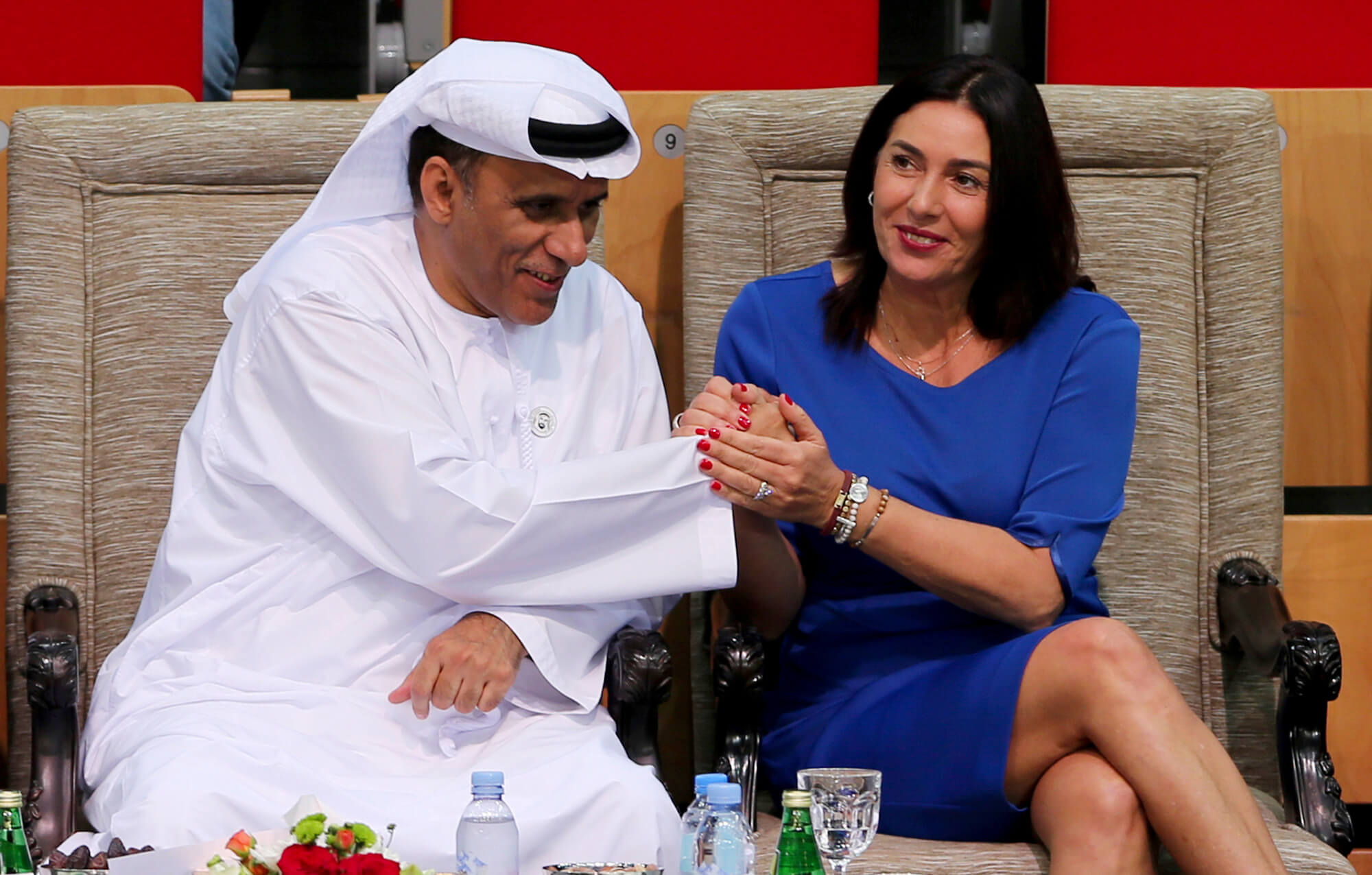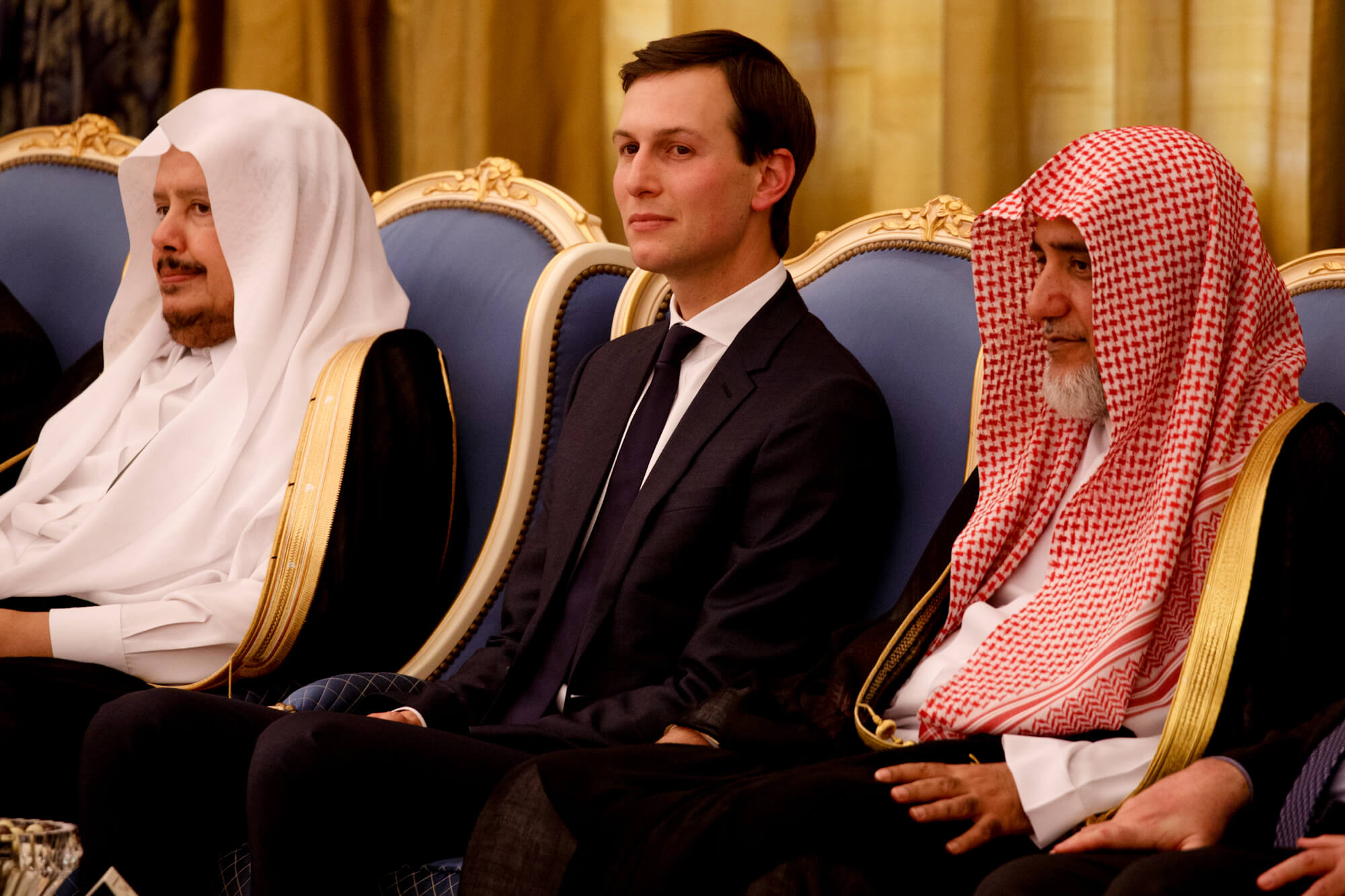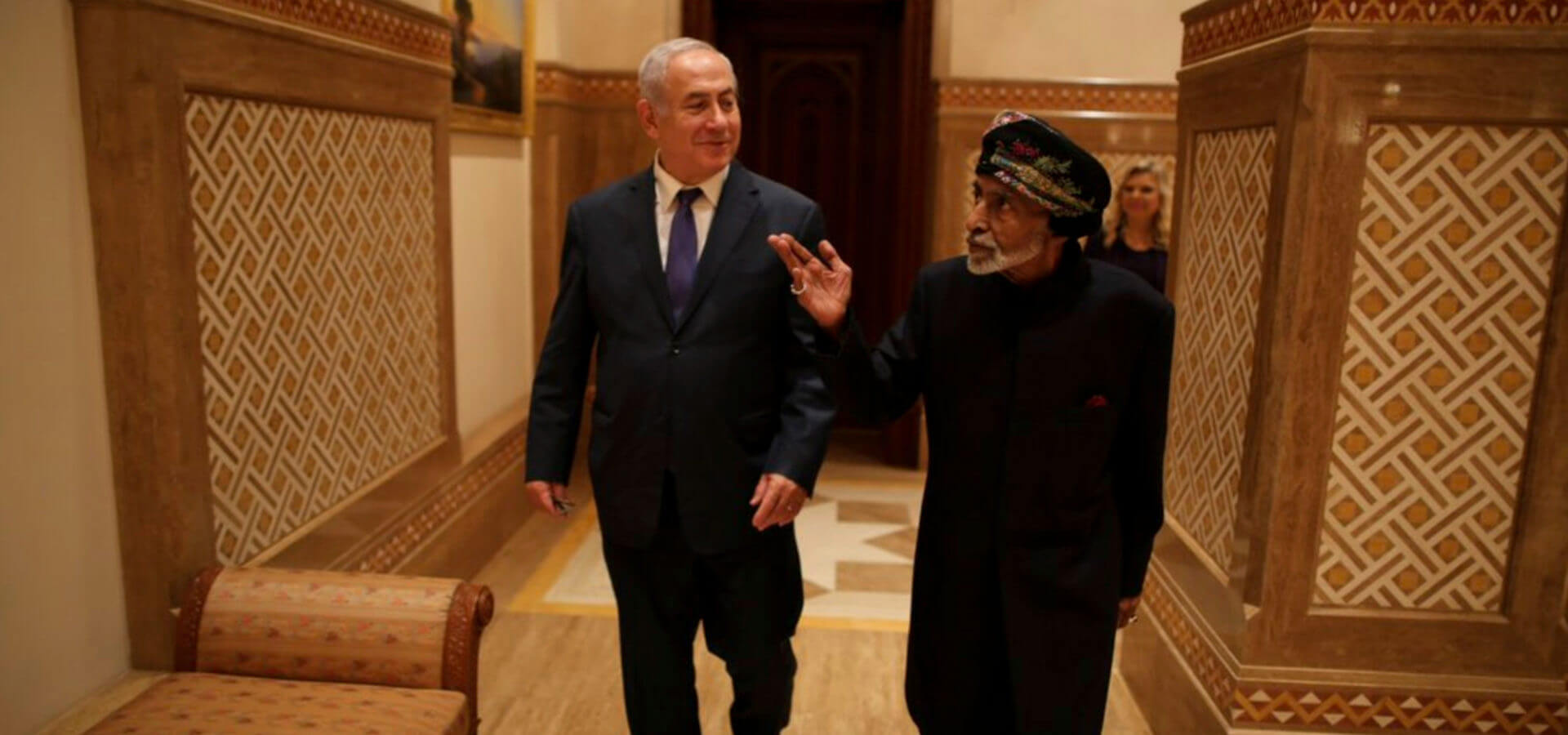UNITED NATIONS — As the Trump administration renews its push for a formal military alliance between the United States and its Arab allies to target Iran, several members of the emerging bloc have joined an unprecedented drive to normalize their relations with Israel.
The timing, regional observers told MintPress News this week, is no coincidence.
In the words of Jana Yasmin Nakhal, a member of the Lebanese Communist Party central committee:
One of the major roles of the creation of such a bloc is to actually normalize with the Zionist entity in order for them, among other things, to weaken the position of the resistance in the Arab world and of the Arab peoples’ position in support of the resistance.”
In July the White House floated a pact with the six Gulf Cooperation Council (GCC) states — Bahrain, Kuwait, Oman, Qatar, Saudi Arabia, and the United Arab Emirates — along with Egypt and Jordan, noting its officials were working on the idea, a recurring proposal in U.S. foreign policy, with “our regional partners now and have been for several months.”
The tentative Middle East Strategic Alliance (MESA) seemed to be a frequent topic at a military summit in Manama, Bahrain, attended by top officials of the eight Arab states as well as Defense Secretary Jim Mattis over the weekend.
When not pledging continued support for the Saudi-led war against Yemen — “We’ll continue to support the defense of the Kingdom” — Mattis hailed the emergence of MESA, stating:
The United States is committed to working by, with, and through allies and partners across the region to make this concept a reality and reinforce deterrence of hostile actions.”
“Some of them feel they can get away with it”
The gathering came alongside a barrage of rapprochement between the Arab states represented in Manama and their traditional, if nominal, enemy, Israel.
Over the same weekend, Israeli Prime Minister Benjamin Netanyahu paid a rare visit to Oman, including an official audience with Sultan Qaboos bin Said. Culture and Sports Minister Miri Regev, accompanying the Israeli team at the International Judo Federation’s Grand Slam tournament in the U.A.E., later toured the great mosque of Abu Dhabi. Another Israeli national team competed at the Artistic Gymnastics World Championships in Doha, Qatar.

Meanwhile, news emerged on Sunday of a $250 million sale of espionage technology by Israel to Saudi Arabia during a series of secret meetings in Washington and London that also included an exchange of military intelligence between the two countries.
“Most of the Arab regimes in question are corrupt, extremely repressive and beholden to imperialism, and have no great political differences with Israel,” Joyce Chediac Wilcox, a Lebanese-American writer, and Liberation News editor told MintPress.
“They would have long ago openly sided with Israel if they thought they could without being overthrown,” she said. “Now, some of them feel they can get away with it.”
The GCC and its allies in Amman and Cairo — to say nothing of Tel Aviv — have long resented Iran’s influence in the region, and several bitterly opposed its nuclear agreement with the Obama administration and five other world leaders. But the emerging bloc marks a sharper departure from established policies for the United States.
While no friend of Iran, Obama sought to contain it through negotiations and trade, often to the dismay of his allies elsewhere in the region.
“Trump has identified selling weapons and arms as a major U.S. priority, escalating the situation and cementing the U.S. presence in the Gulf,” Khaled Barakat, a Palestinian writer and the international coordinator of the Campaign to Free Ahmad Sa’adat, told MintPress.
“This is a real change and a real escalation,” he said. “However, it doesn’t reflect a change in interests. The U.S. goals in the region remain the same regardless of the name of the president — imperial domination and hegemony.”
A major part of the overall U.S. strategy, Barakat added, is to “escalate the development of the so-called ‘moderate Arab camp,’ with Israel as the leader of this regional camp.”
“This is an attempt to say that there is no conflict in the region with Israel — the conflict is instead with Iran,” he said.”It is taking these alliances from a secret level to a public level.”
“An alliance to kill Palestine”
A third element in the timing of both Arab states’ coalescence around an anti-Iranian bloc and their rapprochement with Israel may be the Trump administration’s plans to force a “deal of the century” between Israel and the Palestinians.
The proposal, which the Trump administration reportedly plans to share with the Israeli government this week, is widely expected to disregard most Palestinian claims in Israel’s favor.
“Judging from the Trump administration actions — moving the U.S. embassy to Jerusalem, cutting US funds to the Palestinian authority and UNWRA — the U.S. ‘deal of a century’ would really be to destroy the Palestinian struggle entirely,” Wilcox said.
Palestinian president Mahmoud Abbas pledged on Sunday to block the “deal,” which also faces broad opposition from every Palestinian faction.
But Trump and his Mideast envoy and son-in-law, Jared Kushner, still hope to impose it upon Palestinians with help from their Arab allies.

“In order for Israel to become a ‘natural’ state in the region and part of a regional camp, a deal — by whatever name — must happen with some Palestinians, especially a narrow class who can benefit from this alliance,” Barakat said. “But of course,” he added, “this all comes at the expense of the Palestinian people. This is an alliance to kill Palestine and plunder the wealth, the resources and the people of the region.”
And the Arab hostility the Trump administration hopes to muster against both the Palestinian national movement and Iran require further normalization between Arab states and Israel.
“This normalization breaks any dreams of unity amongst Arab states vis-a-vis the Palestinian cause, and it legitimizes the internal enemy,” Nakhal said.
Alongside the liquidation of the Palestinian national movement, the U.S., Israel and their emerging Arab bloc hope to weaken Iran, currently Palestine’s strongest supporter in the region, if not remove it from the equation entirely.
As Wilcox put it:
The Trump administration seeks to outright destroy the Iranian revolution because it is independent from imperialism and because it has played a major role in stopping Washington’s dismemberment of Syria, and gives crucial aid to Hezbollah, the national liberation movement of Lebanon.”
“The Trump administration seeks to return to the days of the Shah, when Western companies seized all of Iran’s oil wealth, and none of it went to the people,” she added. “Whether the Iranian people will permit this to happen is another question.”
Top Photo | This photo posted on Twitter by Israeli Prime Minister Benjamin Netanyahu’s office on Friday, Oct. 26, 2018 shows Netanyahu visiting Sultan Qaboos bin Said in Oman. The meeting was the first between leaders of the two countries since 1996 and former Israeli premier Yitzhak Rabin made a similar surprise visit to Oman two years earlier. Israeli Prime Minister’s Office | AP
Joe Catron is a MintPress News journalist covering Palestine and Israel. He is also a solidarity activist and freelance reporter, recently returned to New York from Gaza, Palestine, where he lived for three and a half years. He has written frequently for Electronic Intifada and Middle East Eye, and co-edited The Prisoners’ Diaries: Palestinian Voices from the Israeli Gulag, an anthology of accounts by detainees freed in the 2011 prisoner exchange.


